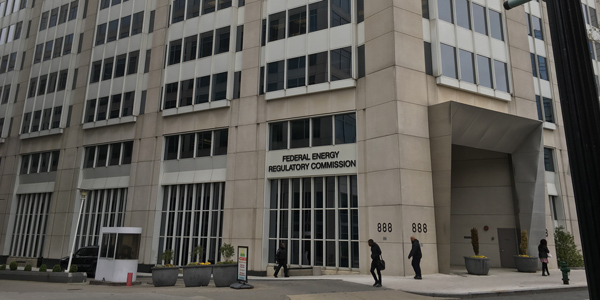ISO-NE asked FERC on Friday whether it was free to seek its directions on how to improve its fuel security following the commission’s ruling last month rejecting the RTO’s proposed Energy Security Improvements (ESI) market design (ER18-1509, EL18-182, ER20-1567).
“The region is at a crossroads with respect to energy security and its reserve markets,” ISO-NE said. “The ISO does not believe that it is prudent to move forward without the opportunity to speak freely with the commission and its staff. Accordingly, we are stalled.”
In July 2018, FERC found that ISO-NE’s Tariff is not just and reasonable because the RTO lacks a way to address fuel security concerns, prompting a nearly two-year-long effort that resulted in the ESI proposal. (See FERC Rejects ESI Proposal from ISO-NE.)
ISO-NE told FERC that it, along with New England states and other stakeholders, “expended considerable resources and time evaluating the region’s fuel and energy security and possible market design enhancements.” Still, its efforts, which included more than a year of stakeholder meetings, “did not benefit from a consultation” with the commission because of ex parte communication rules following the 2018 order.
The RTO requested confirmation of its understanding that the commission’s rejection of ESI left it up to ISO-NE “to determine whether to pursue market solutions to the region’s needs” and that it does not have a pending obligation from the 2018 order to file another proposal.
ISO-NE spokesperson Matt Kakley said that the filing explicitly seeks clarity on whether “ex parte communication rules that are part of a [Federal Power Act Section] 206 proceeding still apply” following the commission’s decision. Kakley noted that the RTO did not request a rehearing of the decision.
The RTO asked that FERC act on its request by Dec. 1, contingent on no other party filing a rehearing request.
ESI would have allowed the RTO to procure energy call options for three new day-ahead ancillary service products to improve the region’s energy security, particularly in winter, when natural gas shortages can leave generators without fuel. Option awards would have been co-optimized with all energy supply offers and demand bids in the day-ahead market.
FERC ruled that the products “do not provide enough time for resources to take the steps necessary to perform during stressed conditions if they have not already taken them” as arranged fuel, for example. The proposal would have allowed resources that have not made advance arrangements to not participate because of its voluntary nature, undermining its ability to address fuel security, the commission said.
The commission also rejected an alternative proposed by NEPOOL, which would have had lower costs to ratepayers than the RTO’s proposal but contained the same deficiencies.




